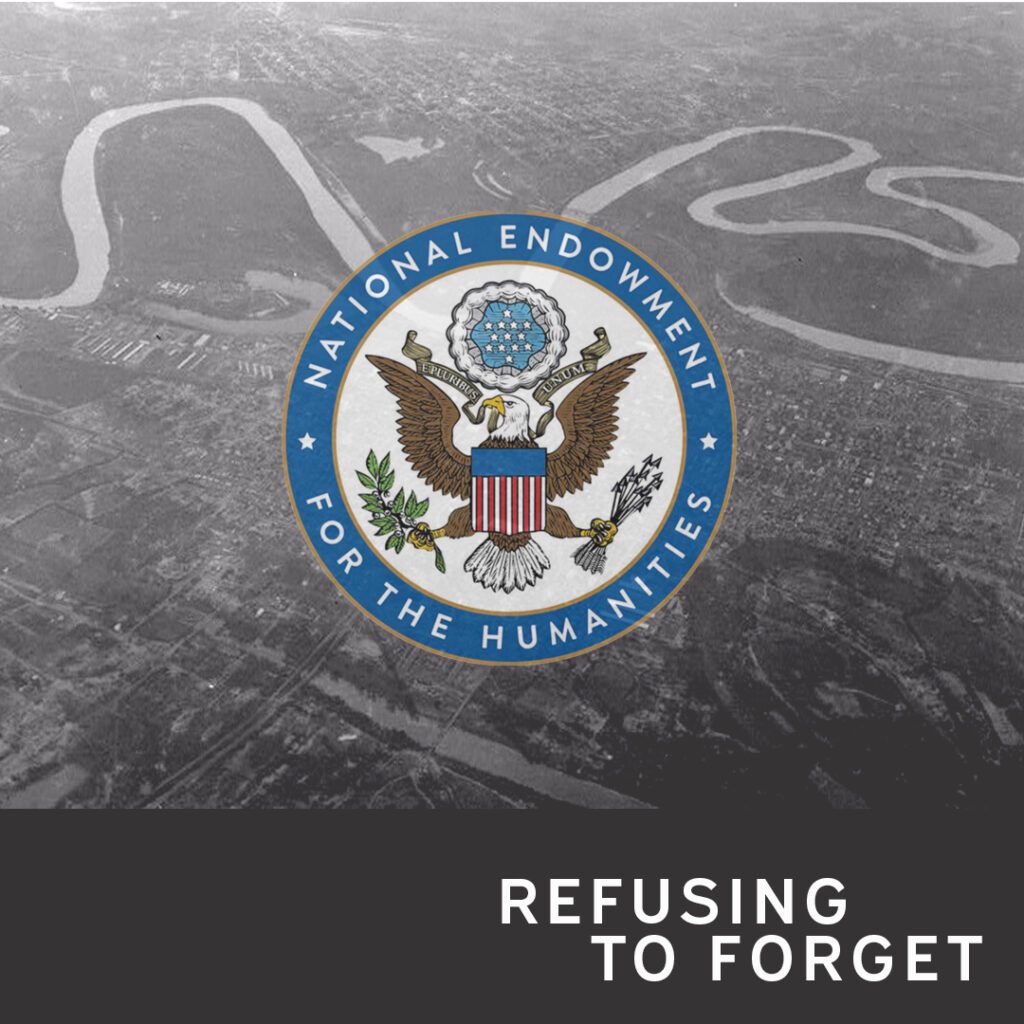Refusing to Forget Awarded Pandemic Recovery Grant from the American Historical Association”
For Immediate Release
March 30, 2022
Refusing to Forget has been awarded funding from the American Historical Association’s “Grants to Sustain and Advance the Work of Historical Organizations Program,” which provides relief to institutions adversely affected by the COVID-19 pandemic. This opportunity was made possible with support from the National Endowment for the Humanities (NEH) through the American Rescue Plan Act of 2021.
Refusing to Forget’s project, “Recovery, Revision, and Remembrance: Public Outreach during a moment of Censorship, Violence, and Pandemic,” will restart the development of a traveling version of the award-winning museum exhibit, “Life and Death on the Border, 1910-1920,” developed in conjunction with the Bob Bullock Texas State History Museum in Austin, Texas, on display in the spring of 2016. Since its creation in 2014, Refusing to Forget has sought to bring the legacies of such history to wider public awareness. Between 1910 and 1920 ethnic Mexicans living near the Texas-Mexico border were targets of state-sanctioned violence. Although historians estimate that several thousand Mexican nationals and American citizens were killed, this period of violence has received little public attention. Refusing to Forget brings public awareness to this often-forgotten period. By doing so, Refusing to Forget can also raise the profile of a struggle for justice and civil rights that continues to influence social relationships today. The organization’s work has been recognized by public history awards from the American Historical Association, the Organization of American Historians, and the Western History Association.
Refusing to Forget is one of fifty grant recipients, which include site-based organizations, membership associations, and history departments at Historically Black Colleges and Universities. Awardees will implement short-term projects that explore new ideas or build on experiments initiated during the pandemic—from online programming or publications to using new technologies or expanding audiences and accessibility.
“The past two years have been challenging for small history organizations,” said James Grossman, executive director of the American Historical Association. “Our awardees have made compelling cases for their status as essential resources, making vital contributions to public culture. The American Historical Association (AHA) is pleased to provide funding for our colleagues to promote historical work, historical thinking, and the presence of history in public life.”
“NEH is grateful to the American Historical Association for administering American Rescue Plan funding to help history organizations around the country recover from the pandemic,” said NEH Chair Shelly C. Lowe (Navajo). “Small museums, historical societies, college history departments, historic sites, and community archives are essential to keeping and telling America’s story. These ARP awards will allow these institutions to develop new programs and resources that will expand access to this important history.”
To learn more about Refusing to Forget’s grant project, see the organization’s website or the citation for the award that the Bullock received for the exhibit.
About the American Historical Association: Founded in 1884 and incorporated by Congress in 1889 for the promotion of historical studies, the American Historical Association provides leadership for the discipline and promotes the critical role of historical thinking in public life. The Association defends academic freedom, develops professional standards, supports innovative scholarship and teaching, and helps to sustain and enhance the work of historians. As the largest membership association of professional historians in the world (nearly 12,000 members), the AHA serves historians in a wide variety of professions and represents every historical era and geographical area.
About the National Endowment for the Humanities: Created in 1965 as an independent federal agency, the National Endowment for the Humanities supports research and learning in history, literature, philosophy, and other areas of the humanities by funding selected, peer-reviewed proposals from around the nation. Additional information about the National Endowment for the Humanities and its grant programs is available at www.neh.gov.

